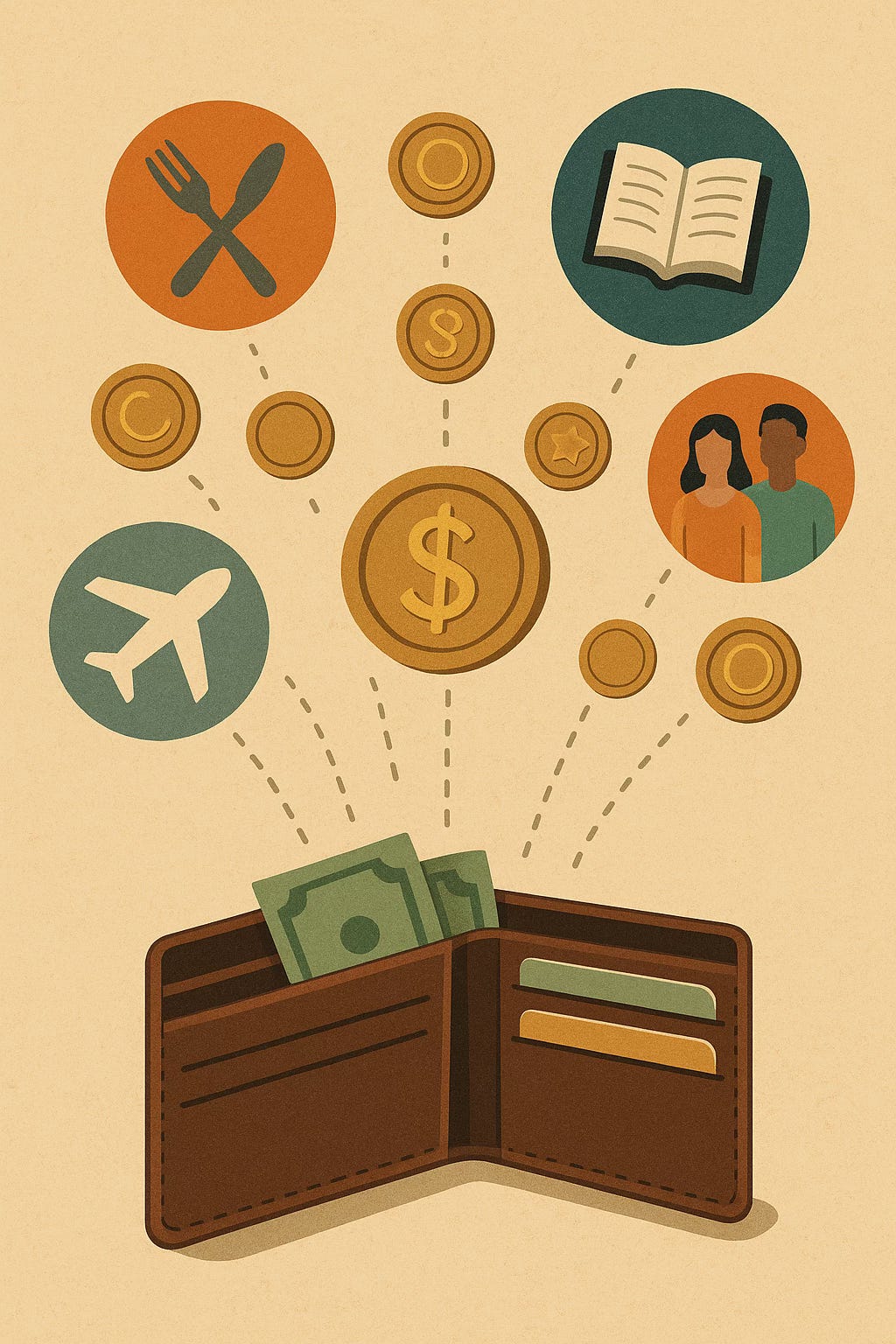Every transaction is a confession. Each time money leaves our hands—whether for food, entertainment, technology, or travel—we are revealing something intimate about ourselves. Our spending is not just an economic act; it is a language, a series of choices that collectively narrate who we are, what we value, and what we aspire to become. Money is not only a tool for exchange, but also a mirror: a teacher showing us what our priorities truly are.
This perspective, deeply inspired by Vicki Robin and Joe Dominguez’s Your Money or Your Life, challenges the notion that spending is simply the satisfaction of needs and desires. Instead, it suggests that every dollar is a vote, not just in the economy, but in the construction of our own identity. If one spends freely on luxury fashion but resists spending on education, the narrative is clear. If one indulges in fleeting pleasures yet denies long-term investments, the teacher reveals impatience, or perhaps a fear of the future.
Money, then, functions as a silent curriculum. The “lessons” are not taught through words, but through habits. To track spending over a week is to keep a diary without words, one in which the themes of our life emerge with startling clarity. Are we nourishing our bodies or numbing them? Are we investing in connections or isolating ourselves through consumption? Are we feeding our sense of purpose, or simply patching the void with fleeting comfort?
The true insight here is that money never lies. We may speak of valuing health, but if our accounts reveal endless indulgence in harmful comforts, the contradiction is exposed. We may insist that family comes first, but if little is spent on shared experiences and much is sacrificed to solitary pursuits, money uncovers the truth. In this way, spending acts as both a testimony and a teacher, exposing the gap between our declared values and our lived ones.
One of the most transformative exercises proposed in Your Money or Your Life is the spending audit: meticulously tracking every outlay, not in terms of guilt, but in terms of alignment. The question becomes: Does this expenditure bring me closer to the life I want? If not, it is not simply wasted money—it is wasted life energy, because every dollar earned is a fragment of time, labor, and spirit already exchanged. This reframing turns money into a profound moral compass.
Think of it this way: money measures not just the price of goods, but the weight of our choices. It translates hours of our life into tangible outcomes. To spend on what is misaligned with our deeper purpose is to betray ourselves twice: first by giving our labor to earn it, and second by squandering the fruits on something that does not nourish us. Conversely, to spend in alignment with what we value is to amplify our sense of coherence and integrity.
Examples abound in daily life. A person who routinely spends on travel may be affirming their love of discovery, or perhaps fleeing from stillness. Someone who dedicates resources to books, courses, or tools for creation is investing in growth, a silent declaration that they see themselves as more than static. Even small daily expenditures—a coffee, a streaming subscription, a ride-hailing service—become markers of personality traits: comfort-seeking, convenience-oriented, or socially attuned.
Seen through this lens, money becomes not only a mirror but a tutor in self-awareness. It prods us to ask: Am I living the story I want my spending to tell? If not, how can I realign? The brilliance of Robin and Dominguez’s approach lies in making us conscious that money is, at root, life energy transformed. Each transaction is not only a transfer of value but a declaration of who we are willing to be.
Philosophically, one might say that money teaches us the discipline of becoming visible to ourselves. Søren Kierkegaard once remarked that the greatest despair is “not to will to be oneself.” Spending is one of the most concrete ways we either affirm or avoid that will. Each purchase shapes a narrative: either a self drifting away from authenticity, or one slowly converging toward its true core.
The lesson, then, is simple yet profound: money teaches us through repetition. It does not moralize but reflects. It shows us patterns and invites us to judge whether they align with the person we hope to become. To ignore these lessons is to wander blindly through life’s market. To heed them is to transform money from a silent manipulator into a conscious guide.
So the next time you spend, pause. Ask: What is this transaction teaching me about myself? What values am I enacting here? Am I buying more life, or selling fragments of it? In this way, money ceases to be merely a currency of exchange and becomes a curriculum of self-examination—a teacher that cannot be dismissed, because its lessons are inscribed in every receipt, every bank statement, and every lingering question about whether we are living in alignment with our truest selves.

